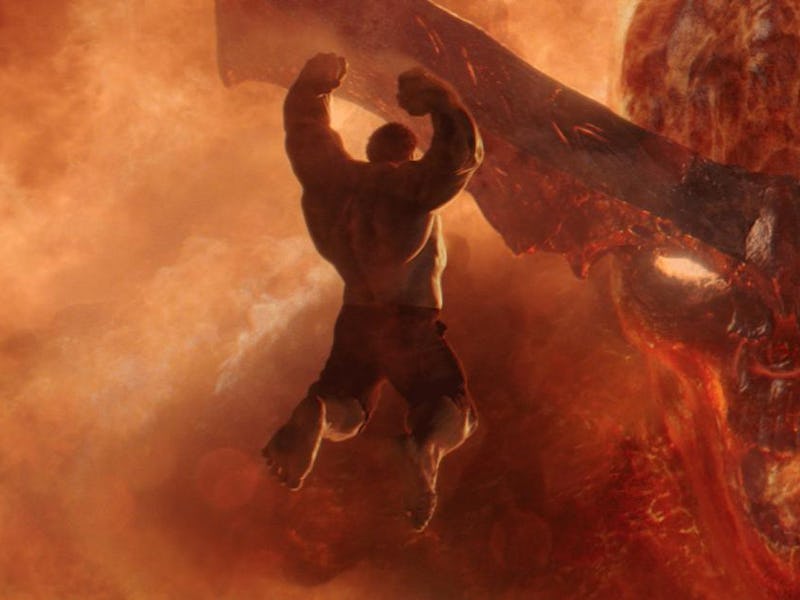Avengers: Endgame directors finally explain their most controversial character change
“We nerfed him!”

One of the very last shots we have of the Incredible Hulk before Avengers: Infinity War is of the big green guy leaping directly into the face of Surtur, the fire demon destined to destroy Asgard after using the power of the Eternal Flame to become kaiju-sized.
That happened in Thor: Ragnarok, which presents Hulk as a brute of unimaginable power. Not only does he soundly defeat Hela’s giant wolf Fenris, but he shrugs off being thrown about a mile by a supersized Surtur. How is it that mere days later in the MCU, Thanos easily overpowers the Hulk and knocks him out?
More than four years after Infinity War’s release its directors, the Russo Brothers, finally delivered the most practical of all explanations: Story reasons.
Infinity War picks up almost immediately after the events of Thor: Ragnarok, with Thanos’ forces ransacking the ship Thor, Loki, Hulk, Valkyrie, and the surviving Asgardians escaped on. Hulk rushes in and gets a few good hits on Thanos before the Mad Titan defeats him with ease, apparently breaking the Hulk’s jaw with a single right hook.
You could chalk this up to Thanos channeling the might of the Power Stone already in his possession, but official Marvel Comics resources indicate that Hulk’s raw strength potential is far greater than Thanos’. For the opposite to be the case here was surprising, and controversial.
What Happened — Wired published a video featuring the Russo Brothers tackling a popular gimmick: Answering the web’s most searched questions via Google autocomplete.
They offer up some praise for the Snyder Cut of the Justice League and chronicle their shared history in the industry, including what they did on Community. They dodge a question about whether they’re done with Marvel and joke that both Loki and Iron Man “deserved to die.” But things get interesting when they’re asked “why do the russo brothers hate the hulk?”
“We nerfed the Hulk! We nerfed him,” Anthony Russo says. “We just didn’t know what to do with him. What do we do with this big, powerful character?” They jokingly say the Hulk “deserved” the nerf, and later, when asked who the most powerful Avenger is, they rattle off Wanda, Captain Marvel, and Thor but “certainly not the Hulk” because “he’d be low on the list.”
The Inverse Analysis — Hulk and Bruce Banner had some ongoing power issues throughout Infinity War that ultimately led to Bruce Banner absorbing the Hulk persona entirely going into Endgame. Hulk refused to emerge for the rest of Infinity War after losing to Thanos, which was somewhat frustrating for viewers.
“People have interpreted that the Hulk’s scared,” Joe Russo said in a May 2018 episode of the Happy Sad Confused podcast with Josh Horowitz. “But it’s really reflective of his journey from Ragnarok, that these two characters are constantly in conflict with each other over control.” It has more to do with the internal conflict between Banner and Hulk, Russo explains, than any bruised egos.
That’s a logical explanation for this plot thread, but their real-world explanation feels like the more compelling reason. As an overpowered rage machine, Hulk becomes a narrative obstacle when he can defeat anything thrown in his path. Both Thor and Hulk were omitted from Captain America: Civil War for that exact reason. Screenwriters Christopher Markus and Stephen McFeely — who wrote both Civil War and Infinity War — previously pointed out that their power levels presented a problem: “You put those guys in a fight, it's over quickly,” Markus told Entertainment Weekly back in 2015.
With that in mind, the Russo Brothers had to nerf the Hulk. Otherwise, the highly anticipated Infinity War would have been over in about 10 minutes.